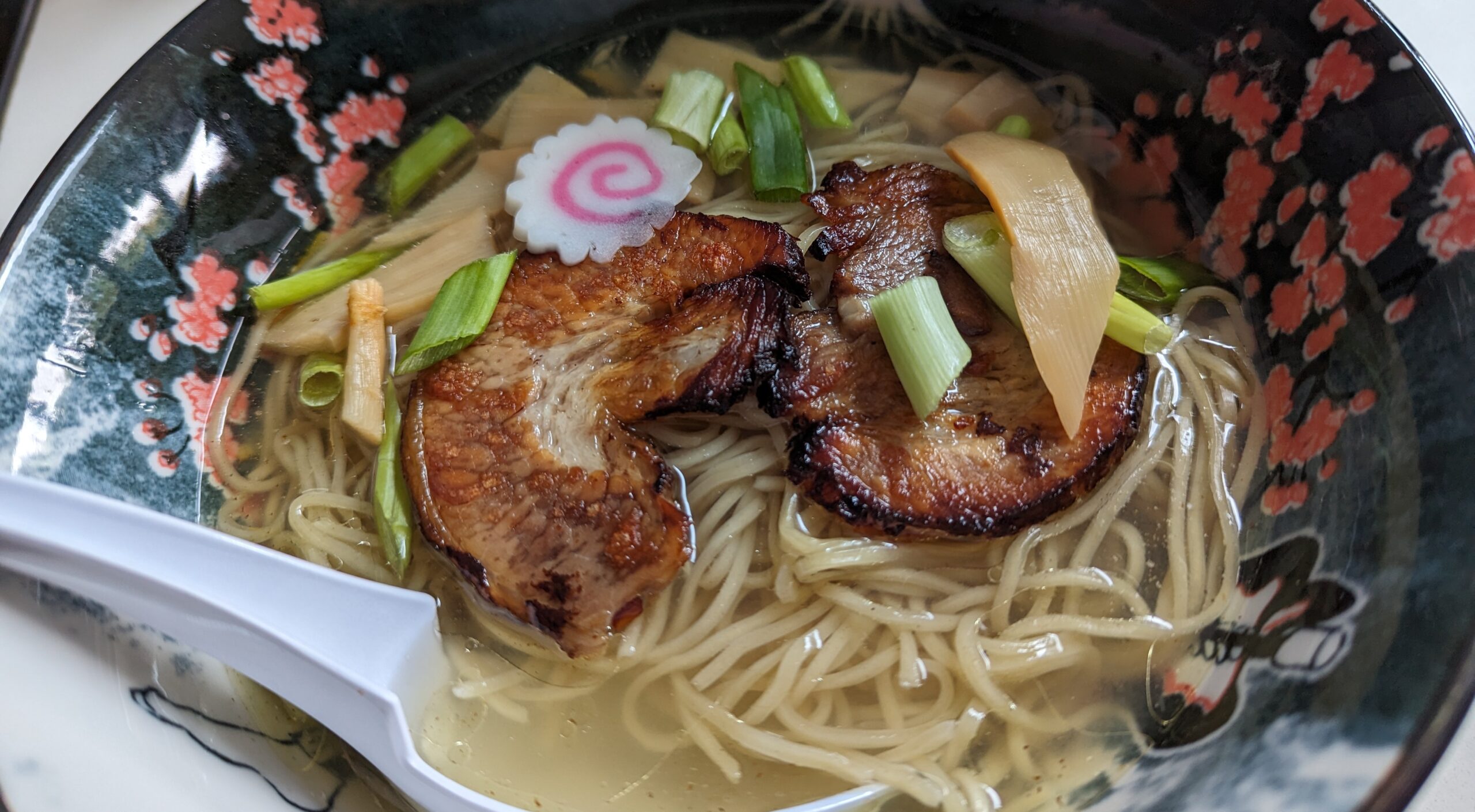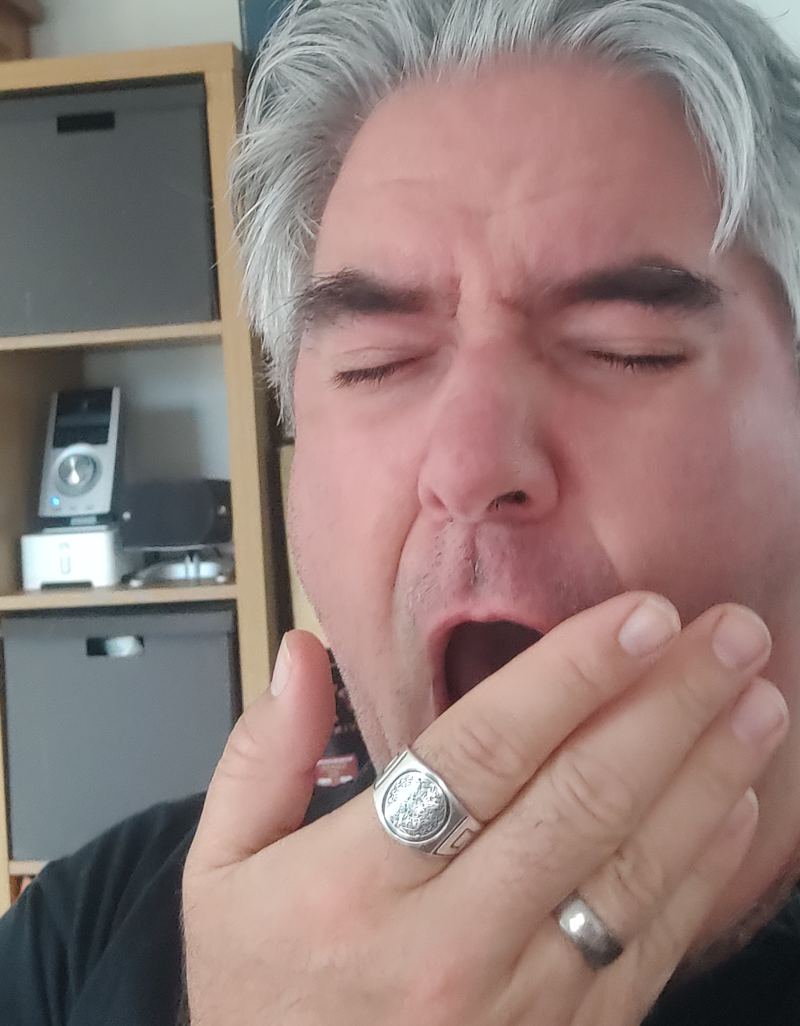One of the reasons, it’s been said, that the rationalist/skeptic movement haven’t swollen their membership in the same way as say, an organised religion, is that there’s no obvious focal point for them to congregate at. So in 1999 a group called Skeptics In The Pub was formed to provide a regular chance for people to experience lectures on “a rational approach to extraordinary claims” in a social environment.
On Monday Feb 15th the London Skeptics In The Pub were holding a meeting, so it seemed a good idea to pop along & see what it was all about. The topic was “Homeopathy and the 10:23 Campaign – There’s Nothing In It!”.
The 10:23 campaign has been set up by the skeptic/rationalist movement and has gained quite some attention lately – the cut & thrust of it is that the scientific & medical community believe it’s unjustified for the NHS to fund homeopathic treatments on the basis that there’s no proveable scientific basis that they’re in any way effective. It also draws attention to the fact that some chains of chemist stores are selling these unproven remedies without any clear labelling to indicate that the remedies are placebo in nature.
There is a huge raft of materials expanding on the topic matter – a very good summary of the issue is on the 10:23 Campaign Website – but in essence it relates to homeopathy (and specifically to homeopathy, not any other form of complementary or alternative medicine), which is the belief that symptoms are treatable by taking super-diluted mixtures of a relevant compound. The system was invented in 1796 by a German doctor, and the concept is that a super dilute solution is given which is so dilute it just contains an “idea” of the substance. The typical dose is at a concentration known as 30C, and as the wikipedia entry on homeopathic dilution puts it:
on average, this would require giving two billion doses per second to six billion people for 4 billion years to deliver a single molecule of the original material to any patient.
The content of the Skeptics talk was summing up of the case from the scientific side, and outlining the sorts of claims which homeopathy proponents have made, such as what is treatable and what scientific evidence & research they have in support of their discipline. The main body of the talk was delivered by Martin Robbins: a science blogger who writes for The Guardian’s blogs, and much of the content mirrored a recent article he’d written for them, and then his response to the British Homeopathic Association’s response to that article.
As someone who has a broad working understanding of the topic area I found it fascinating to learn more of the specifics of the issue, such as the BHA referring to certain studies as evidence of the efficacy of homeopathy – whereas they’ve cherry picked what looked like statistical outliers from the greater body of research, and used partial quotes to substantiate their claims. One example was a quote the BHA pulled from a study performed by Cucherat (2000):
There is some evidence that homeopathic treatments are more effective than placebo
As Robbins pointed out, the full published line that quote is taken from is:
There is some evidence that homeopathic treatments are more effective than placebo; however, the strength of this evidence is low because of the low methodological quality of the trials. Studies of high methodological quality were more likely to be negative than the lower quality studies.
Overall the evening was excellent and the speakers were highly knowledgeable and informed within the topic area: the introducing speaker was scientist, broadcaster & author Simon Singh. He spoke of a small trial that some people from the Sense About Science campaign conducted whereby they sent a girl around to 10 homeopaths to say that she was travelling to Africa and wanted to obtain an anti-malarial treatment, but didn’t want to take “conventional” malaria tablets due to their side effects: each of the homeopaths sent her home with a highly diluted homeopathic remedy containing no active ingredients whatsoever. As a “control group”, they also sent the girl to a travel advice centre with the same question – here they asked her what kind of tablets she’d had side effects with, as there are more than one variety of proven effective conventional treatments. As well as this, they discussed various means of minimising infection risk in the first place, and she left with many strategies and a lot of useful information. I was quite staggered by this: the idea that anyone would advocate sending someone into a high-infection-risk situation with sugar pills to protect them is quite stunning.
As I said – the evening was very informative, however if I was to offer any sort of critique it would be that I found it all a bit smug. The room was definitely full of rationalism zealots, and the smugness that came across was that of a bunch of people who know that they’re right and what’s more they can prove it with repeatable scientific evidence. It’s difficult to articulate what about this I disagreed with – I’m a huge supporter of the science/evidence school of thought, however in the field of civilised discussion I guess I believe that the way to prove the strength of your argument versus someone else’s is by presenting your case as:
My claim is this, and here is my explanation and evidence to support it.
The tone of the Skeptics evening, as far as I could interpret, was more along the lines of:
My claim is this, here is my explanation and evidence to support it, and oh my god can you believe that these other people believe something different? They’re so stupid! What they think is clearly ludicrous!
Perhaps it’s a stylistic point – I’d always thought arguments were more effective if the losing party had the chance to realise by themselves how ludicrous their side of it was, rather than having it beaten into them. Although I can also see that there must be a point where once the argument’s gotten exhaustive and the opposing side still refuses to give currency to a watertight case it all gets a bit frustrating and easy to conclude that possibly the opposing viewpoint doesn’t have the intellectual capacity to understand the facts.
Still – I was rather hoping that the content & attitude of the evening would be such that if they’d invited a homeopath spokesman along to present their side of the story that they could do so without it turning into an intellectual sort of “Lord of the Flies” moment.
Overall though the quality of information outweighed the downsides of the presentation. There were certainly some moments of quality humour throughout the proceedings: the shape of the room was such that not everybody could hear very well, and at one point someone shouted out “We’re experiencing a homeopathic quantity of sound around this side”.
I guess you had to be there.
If you’re a Skeptic Trainspotter then it’s not a bad night to be at – along with Simon Singh, also present was wild-haired Bullshit-Buster Pursuivant Dr Ben Goldacre, and Allan Green who runs the excellent Jack of Kent legal blog. Sort of rationalist royalty, if you will.
I don’t know – maybe the smugness thing’s justified after all. I mean, any discipline which seriously suggests that taking sub-molecular doses of sulphur can treat over 1300 complaints – including
“being busy all the time, childish peevishness in grown people, averse to business (loafs-too lazy to arouse himself), nervousness before period, vertigo & dizziness while walking in the open air, dry scalp, cornea like ground glass, offensive smelling discharges from ear, imagining foul smells, elongated uvula, very weak and faint about 11 am, haemorrhaging from anus, great quantities of colorless urine, back perspiration, waking up singing and freckles”
– and can’t provide any solid scientific evidence to prove effectiveness or mechanism for any of it, and yet maintains that it should be sold in pharmacies because the public have demonstrated a demand for it is past the point of level-headed discussion.




